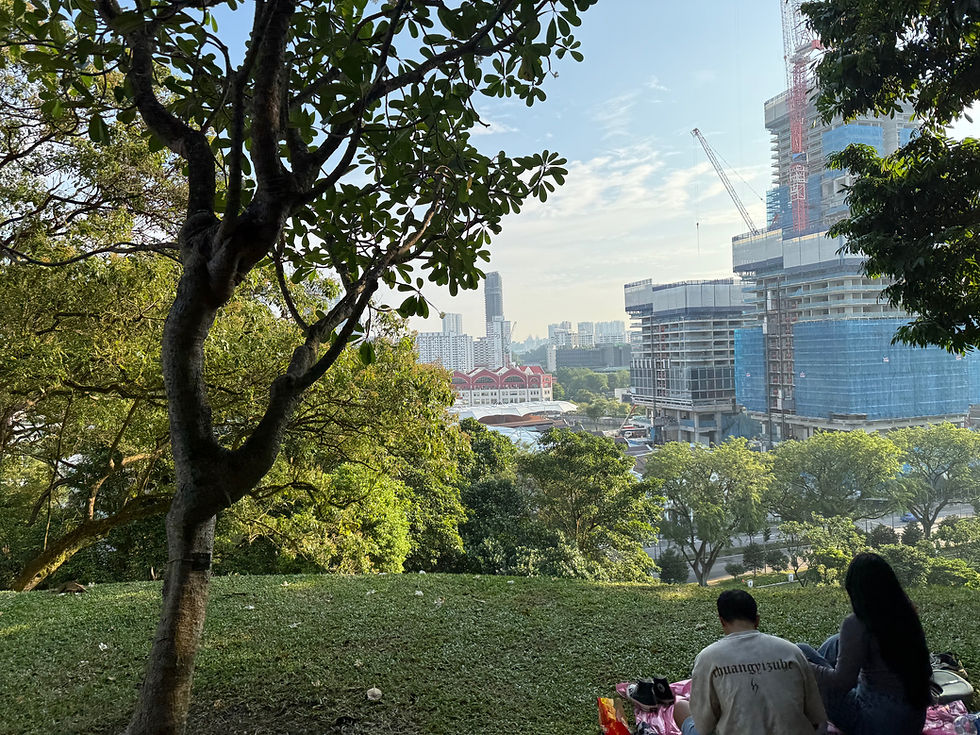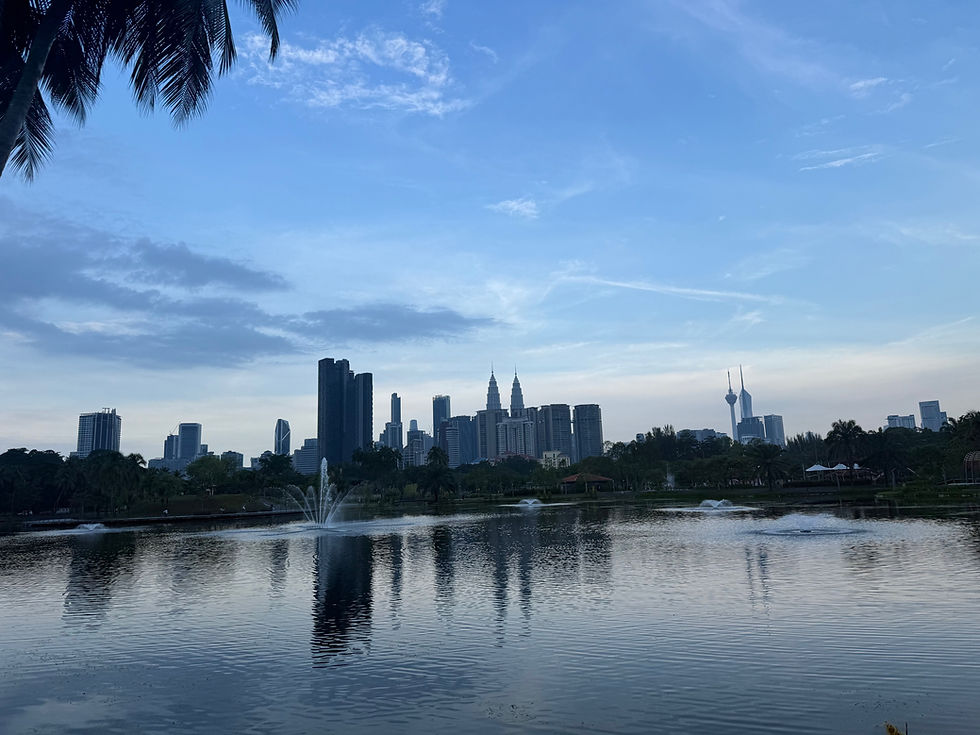Democratization in the Global South: Bangladesh Examined in Context
- Nikola Ranick
- Sep 18, 2024
- 6 min read

Who doesn’t love a successful democratization story? A country’s citizenry, regardless of their differences, unite in a common struggle for the liberation of their countries' political and financial systems, ushering in unprecedented growth and national renewal. It is a beautiful story we wish was common, but the few analogous examples of this tale are rarely ever so black and white. Instead, democratization offers countless nuances and double-sided narratives, adding context that is both realistic and disappointing. To demonstrate the many case-in-points:
Algeria’s democratic revolution is still hampered by the ruling elite and military Le Pouvre who were supposedly discharged when its feeble president was toppled.
Sudan has fallen into a grotesque civil war that looks to have taken previous Darfuri-esque ethnic cleaning/genocide nationwide.
A briefly (semi) democratic Myanmar has regressed into anarchy as the military jostles for national control from an amalgamation of militias and ethnic groups that threaten the very identity of the state itself.
Thailand's military has continued the country's trend of some dozen military coups by banning the opposition and forging forced coalitions with acquiescent rivals-turned-allies.
Pakistan's military has forcefully pushed out the surprisingly popular Imran Khan and his PTI party in just as brutal of a manner as they were shoved in over the (newly re-empowered) Sharifs and their PLN.
Nearly a half dozen African States have been 'liberated' by its armies from either ineffective democracies or quasi-authoritarian systems, but consistent democratic transitional delays make clear the army has no plans to return to the barracks.
Bangladesh is unfortunately likely to continue this trend of a falsely promised democratic renewal with substantial protests pushing out its present Strongwoman. In a short mouthful: Prime Minister Sheikh Hasina, facing escalating riots over her decision to violently suppress protests from a Bangledeshi Supreme Court Case on affirmative action, fled the country and abdicated power after the army told her they would not uphold her orders. If this sounds confusing, that is because it is, and there are numerous accusations of shadowy interests directing players to act out their will (a mystery that may never be solved). Still, could this be a change of heart from the military establishment to usher in a resurgence in genuine democratic choice? Maybe, but probably not.

For one, its tradition of 'democracy' is jostled between two political cartels whose leading women - the impressive feminism of that aside- harbor such overwhelming disgust for each other that it is seconded only by their distaste for free elections. These women, the Bangladesh Nationalist Party's (BNP) Khalida Zia and Awami League's Sheikh Hasina have rotated country control, both rigging the rules in their favor while in charge, and castigating the other as a threat to liberty when in opposition. It would be unfair to write off the entirety of Bangladesh's political history as faux-democratic, as there is a pluralist nature resonating in a similar manner to India. And the clientilist networks of the BNP and Awami League are natural byproducts of a lower income developing country, perhaps offering similar roles that chaebols businesses offered to developing South Korea. But the difference remains that Bangladesh is prone to corruption and clientelism in a way East Asia is not. And these two parties are increasingly unable to leave Bangladeh's political domain that allowed their respective families to rule the country for generations (very often killing each other in the process). As such, the Land of Rivers has faced increasing authoritarianism in the past decade.

The Awami League's most recent tenure was arguably the most undemocratic and virtually locked out the BNP, and any other opposition, to political influence. The abdication of Hasina does not change this dynamic, as her Awami League power structure, particularly with some of its youth squads, are likely to remain rabblerousers despite -and because of- their leaders’ exile. Indeed, on Indian Radio (the country where Hasina currently seeks shelter), the exile's son guaranteed his mother would look to return to the political space as soon as she could. And the freeing of Zia from captivity, though a mild triumph for political imprisonment, is like expunging the conviction of a proven serial murderer. If anything, Zia will look to drag the BNP back into power in tandem association with the undemocratic Islamic elements of Bangladesh that Hasina herself often struggled to rein in.
Most concerningly, even the traditional party system's absence would not offer Bangladeshis anymore hope. Note that the freeing and appointment of political prisoner Muhammad Yunus as "Chief Advisor" was a military decision. A Nobel Prize winner for micro-financing, Yunus risks soiling his own brand by providing democratic legitimacy to an otherwise regimented army. In the usage of figureheads to empower otherwise faux democracies, Bangladesh is taking the worst type of page from its once-oppressor Pakistan.

Yet military rule may still avail the worst outcome. Should the soldiers fail to provide stability, Bangladesh could fall into the Tyranny-Anarchy Loophole. This International Relations Jargon dictates a country shifting from absolute control could end up in absolute chaos, an existential vacuum cleavaging the country further apart. Just look at the Arab Spring - there is a reason no one talks about it anymore. Not only has it failed in every single country that adopted it (in recent years, even the first country to undergo revolution, Tunisia, has faltered), but the overall development of the region has moved startling backwards in all measures from political stability to economic welfare.
Syria is enamored by lawlessness, Islamic insurgency, and a semi-incompetent dictator who has been a bit too keen to commit borderline-genocide against his own people.
Not to be outdone, Libya is in perennial division, with an incompetent UN government in Tripoli jostling for influence alongside many armed militias and warlords (such as Khalifa Haftar) in the country's east.
Egypt suffers from an army occupation and brutal crackdown on dissent, coupled with an elite-captured economy and, somehow, still chronic insecurity from Islamic insurgents. Infamously, the populace has become so pessimistic that its oldest citizens hold a strong nostalgia for the days dictatorships under Mubarak.
Tunisia, where it all started, is also where it all ended. In the past couple years, the complete failure of a multiparty parliamentary system (including the polarizing Islamist Party Ennahda) to improve either economic or safety outcomes led its largely anonymous President, a CONSTITUTIONAL SCHOLAR, to suspend it and rule by decree. Poetically, these acts have seen staggering support from the average Tunisian who once clamored for the exact opposite.
YES, I am well aware that, despite starkly common misconceptions, Bangladesh is neither Arab nor Middle Eastern, though it does maintain a majority Muslim population (that most Muslims actually live outside of the Middle East is another article entirely). It is a South Asian nation with significantly different historical and cultural lineage, descending from colonization under the British Raj. But the fallout from faux-democracy rings true across the developing world and in a manner conducive to the Arab Spring. Not only could present difficulties fail to bring genuine choice, but they also could slow developmental growth (one of Bangladesh's shining stars, albeit still low wage).
That slowdown is a three-pronged possibility: The first, Yunus' genuine democratic government fails to promote enough security to assuage nervous investors and there is a capital flight even as the rules favor international trade; the second, the army captures industry in a wider manner than either the BNP or Awami League, leaving scraps for the general populace in a pseudo-Egyptian manner; the third, Bangladesh’s high density poverty and cultural incongruity makes it uniquely vulnerable to economic gridlock and further push the nation into failed state territory. In that last scenario, Islamic groups and political militias alike could devolve into a feudal system to the like of Syria or Libya. After all, the very protests that triggered Hasina's ouster were over preserving specific quotas toward descendants of fighters in Bangladesh's Independence War. Poor policy aside, violent riots stemming from veteran resentment are NOT a good remedy for nationwide narrative building.

This is a tragic turn for a nation with a bright future. Bangladesh was long held up as a developing world triumph for its undying belief in globalization and genuine 'power to the people' mindset despite rocky politics. But its availability to further level up to a middle income country was more and more in doubt as globalization seemed to hinder as oppose to enhance. Instead of genuine debates and policy proposals, Bangladesh will now be lucky to achieve even mediocre answers. After all, the democratic feedback loop in a young and energetic country is always ironically anti-democratic in nature. If the majority populace will it to be so, an unregulated system lacking checks and balances alongside trampling minority rights, will emerge.
True, nuance as it is, there is hope that this transitional government can genuinely create a more amicable system. The will of the Bangladeshi people, considering their history of oppression by their Pakistani neighbor and subsequent liberation, speaks for itself. And the country also boasts a particularly powerful diaspora, largely resting in east London and with global connections to prove it.
But much positive internal development occured in tandem with Indian support, and its current sheltering of Hasina, along with the Hindu-Nationalist government's concern over Bangladesh's Hindu minority, means distrust is likely to grow between these former friends. And a strong diaspora itself may not matter in a country with close to 200 million people in geographically distant (and shrinking) South Asia. Indeed, the region is prone to climate related disasters, with the country's sinking ranking it among the most climate-vulnerable nations. In more ways than one, this promising nation may be sinking.




Comments